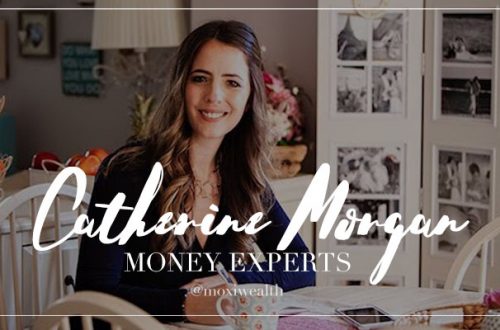Pension Tips From Erica Sample
The Story
We caught up with Erica Sample a financial advisor with over 16 years experience. She shared her essential pension planning tips with us, to give to you. Enjoy!
What age do people start pensions?
The reality is that if people don’t have an employers pension they start later. Usually in their 30s. But, this will change soon because of pension auto-enrolment which means if you are over 21 and earn over £10K a year, your employer and you have to contribute to a pension.
Any tips on managing a pension?
I would say start with something you can afford because it encourages you to maintain the contribution should you face any financial difficulties. At the same time realise this is your retirement pot and you deserve a good time when you have stopped working so make sure you increase the contribution when you get a pay-rise.
You can speak with a Independent Financial Advisor (aka IFA) or use an online tool, like the Money Advice Service pension calculator, to help you plan.
What are the options at retirement?
You can take 25% as a tax free lump sum and use the remainder to fund an income. More people are using the flexibility that pensions provide through drawing down flexible income, which means you can choose when you want to take an income and can turn the tap on and off. The money you don’t take out of your pension remains invested and has opportunity for growth.
Annuities are also still available, which can provide a fixed income for life and are based upon the size of your pension pot, age, and health at the time.
Do all employers have to offer pensions?
Yes. Regulation now stipulates that all employers must provide a pension and if you want to contribute into it they will contribute as well (there are set minimum contribution levels employers must meet).
Never turn this down if you can. Some people are hesitant as they might not envisage staying in the company for that long but these pots can be transferred into future new schemes. So, don’t opt out as its a loss of earnings if you do.
How do Independent Financial Advisors help when it comes to pensions?
We can explain in plain English how a pension works. Unless people are ‘in-the-know’ they are not in a position to make an informed decision. Also, pensions bring a lot of tax benefits. We can help make an efficient plan.
The main day-to-day work of an IFA involves researching appropriate providers, choosing funds and setting up schemes. Once the schemes are set up, we can help with servicing, making sure the funds are performing well and switching where necessary.
When the client gets to retirement, we help with assessing their options. A lot of clients accumulate different pension pots over the years. Our work involves understanding your schemes and deciding if its best to move or consolidate into one pot. I must stress this is not always a clear cut area and one should get advice.
Anything else?
A few key things I work with younger females on:
• Making them aware of the tax benefits of being a higher rate tax payer. Pensions are a great way to save if you pay 40% tax.
• If they are self-employed or a freelancer they may benefit from opening their own limited company. Because the company can make pension contributions and this is classified as a business expense hence there is a tax saving. Not everyone is aware of this.
• Helping decide where best to invest money. Realistically we should be saving for the short, medium and long term. Most people will be saving for a property or paying off a mortgage. But it’s also important to protect your savings and aspirations because if anything were to go wrong health wise your savings, pensions and property could all be impacted. It’s about looking at the whole picture; prioritising a retirement planning isn’t always top of the list.
Final Word
Nothing in this article can be taken as advice. If you would like financial advice on pensions, mortgages or any other investment you can email Erica at EricaSample@thinkpositive.co.uk. Erica is based in London and would be happy to meet for a free consultation (and coffee!).









